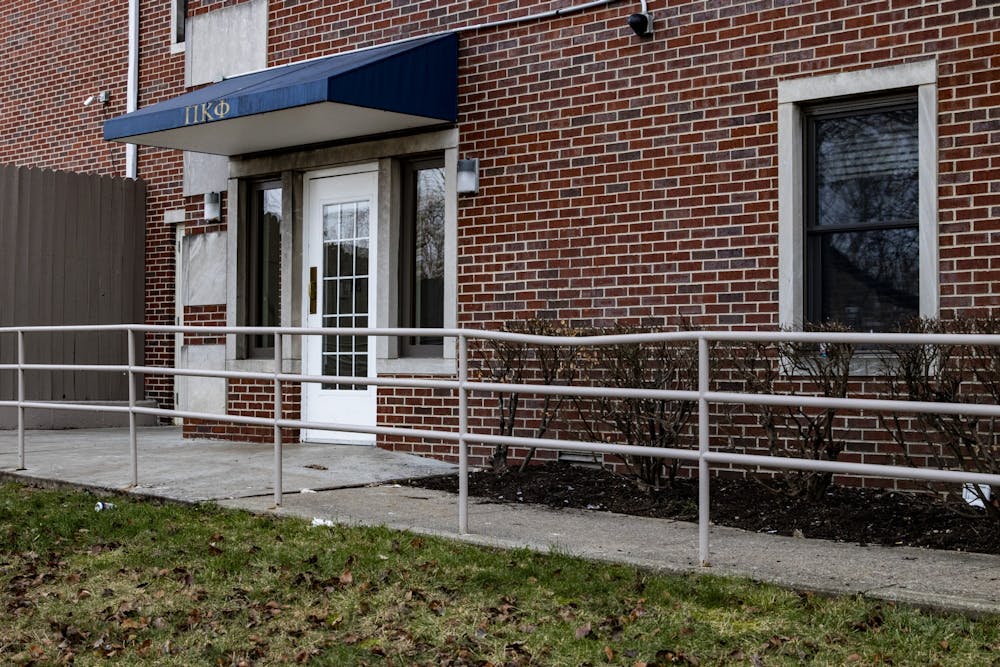Almost 1 in 5 students at IU-Bloomington are members of a fraternity or sorority.
Greek life on campus is turning 175 years old this year. Membership can be a springboard to success: Almost 40% of U.S. presidents were members of fraternities. However, numerous chapter suspensions and publicized hazing incidents have left the future of IU's fraternities and sororities uncertain.
If fraternities and sororities hope to continue being a significant part of IU’s student body, it is imperative they address endemic issues: abuse of drugs and alcohol, sexual assault and discrimination.
Greek life doesn’t have to end on college campuses, but it does need to undergo cultural change. To help the shift, students should learn about responsible and healthy drinking practices, consent and active bystander intervention earlier in their greek experience.
One of the most discussed problems in greek life is abuse of alcohol and drugs.
Following reports of violations of hazing and alcohol use policies at multiple fraternities, IU’s Interfraternity Council entered into a three-month self-suspension in November 2017 that stopped all social and new member activities.
Almost half of all residential fraternity members in one 2018 study published in the Journal of Adolescent Health developed symptoms of alcoholism by age 35.
The issue is related to the living environment. The researchers found that 45% of male participants who were members of residential fraternities showed at least one symptom of alcohol use disorder, compared to 32.7% of male nonresidential members and 30.4% of male college students not involved in a fraternity.
Sexual assault is a concern, too. IU-Bloomington’s 2019 Campus Climate Survey found that 10% of reported sexual assaults occurred at fraternity and sorority facilities.
The problem is deeply ingrained in the system. A 2015 sociology article describes how the competitive nature of fraternity life may lead to normalization of sexual aggression.
“Fraternities and intercollegiate athletic programs actively encourage the kinds of masculinity that make their involvement in sexual assaults of women more probable,” the article reads.
This is not to say that fraternity membership causes sexual violence. The sociological study found the cultural expectations of a fraternity surrounding intimate relationships have a significant effect on member actions.
Unless a recruiting class makes a meaningful effort to emphasize the necessity of clear consent and active bystander intervention to new members, they might not understand that such practices are vitally important and not optional.
Another issue in greek life is discrimination, which was exemplified by the December cease and desist order of Pi Kappa Phi after a physical fight occurred and members allegedly used racial and anti-Semitic slurs.
With these serious problems, some students, including past IDS columnists, have come to the conclusion that greek culture at IU is unsalvageable and that these organizations should be dissolved. I disagree.
I recognize there is good and important work that these groups do, from the various charitable causes they support to registering students to vote to providing a sense of belonging. The idea that we should dissolve greek membership often ignores the historic and important role that National Pan-Hellenic Council and Multicultural Greek Council chapters have had.
Even though the problems are tied to the system’s culture and environment, greek houses can change.
The solution must involve targeted educational programming. A 2016 analysis published by the American Psychological Association found classes that challenge students’ social expectations of drinking led to fewer days of heavy drinking. The Green Dot study, a program designed to increase and teach bystander intervention, showed that bystander intervention programs significantly reduce violence on college campuses.
IU’s Office of Sorority and Fraternity Life already requires trainings on alcohol, sex and consent for first- and second-year greek members. However, the greek experience and the social and cultural norms it instills starts earlier during recruitment. IU should introduce programming, especially bystander intervention training and moderator-led discussions, during recruitment. Requiring programming earlier will help instill social norms before official greek membership begins.
The question at hand is not whether these problems can be solved. The various studies and programs I’ve mentioned show there is a solution. The question is whether the various chapters at IU will make a conscious choice to work toward making lasting change.
Everett Kalman (he/him) is a junior studying law and public policy and is the vice president of external affairs for Culture of Care at IU. He plans on practicing immigration law in the future.
CORRECTION: A previous version of this story mischaracterized the nature of the allegations against members of Pi Kappa Phi. The IDS regrets this error.






